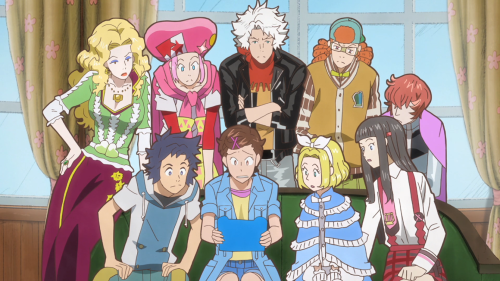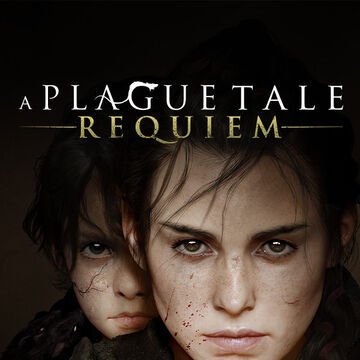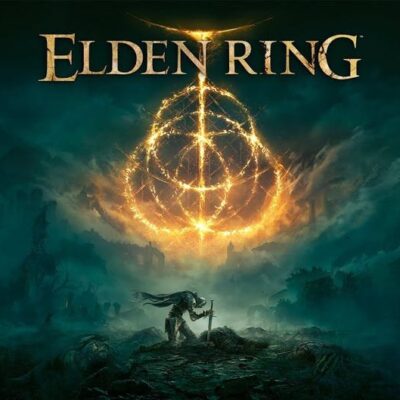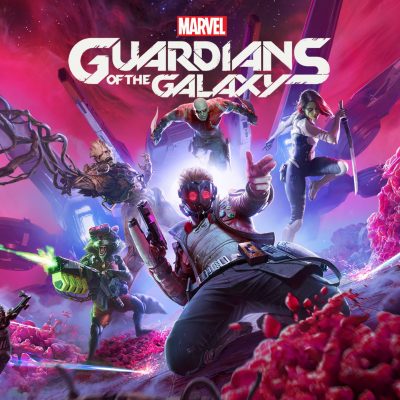
Welcome to another ClassicaLoid Doubletake! Each post, I dive into a noteworthy aspect of the show and present two “takes” — two commentaries on plot or character points that stood out to me. One take is from a fan’s perspective and the other is from a fiction writer’s.
Season two overall
A boy named Wataru shows up at the mansion unannounced, claiming to be Kanae’s unknown, long-lost little brother. Kanae believes him and takes him in, much to the chagrin of the other ClassicaLoids. Wataru charms Kanae, but acts like a devious, rude little snot toward everyone else when she isn’t around. For some reason, he also has a pet pigmy hippopotamus he insists has to live with him.
Soon enough, it’s revealed that Wataru is actually Richard Wagner — season two’s antagonist. He’s a ClassicaLoid considered to be “botched” because he’s unable to properly access Musik. Wagner gets close to Kanae as part of his quest to locate Kanae’s missing father, the creator of the ClassicaLoids. Wagner wants the scientist to explain why he was created so imperfectly, and to force the man to acknowledge that actually, Wagner is the greatest of the ClassicaLoids (not botched).
What Wagner’s plan boils down to? Become so famous Kanae’s father will notice him from wherever on the planet he’s hiding, then rush to Wagner with hugs of acknowledgement. Yes, hugs. All Wagner really wants is love — and, oh… to steal the Musik from all the other ClassicaLoids and control it himself, starting with the great Bach.
Whereas season one culminates with an unexpected but entertaining confrontation with not so much Bach, but rather (surprise!) space aliens… season two ends on a slightly more serious note as Kanae fights to stop Wagner’s evil and show him he’s already loved. Other than that thread of plot unfurling, the episodes consist of the usual shenanigans.
Reaction as a fan: I feel like the second season took a while to find its legs and not seem like it tried too hard, or walked over already-tread territory. The true gems of episodes didn’t start popping up for me until towards the end. (See season two episode 17, “WesternLoids of the Wild West,” and 19, “The Melancholy of Schubert.”) That said, overall I enjoyed Wagner’s development as the antagonist and the plot around him more than I enjoyed Bach as the baddie in the first season.
Reaction as a writer: What she said. With the addition of my following commentary about season two keeping the same opening theme song from season one.
It’s rare these days for an anime not to have a new theme song every fifteen episodes, so that ClassicaLoid hit fifty of them without switching out its jam stands out — as something that could have turned out risky by becoming boring. But in this case, I don’t think it became boring at all. That song is great — and if it ain’t broke, don’t fix it. It’s always nice when creators recognize they have something good and keep it, instead of sacrificing it to follow the usual trends.
Wagner’s pet hippopotamus is actually Dvorak
If you don’t know classical composers, you might miss that Wagner refers to his hippo as “Dovo-chan,” well before this reveal happens… and that “Dovo” sounds an awful lot like the beginning of the name “Dvorak.” Eventually, though, it gets revealed that the hippopotamus can wield Musik — therefore, he’s a ClassicaLoid, too, also created by Kanae’s father.
Reaction as a fan: HE’S ANTONIN DVORAK? THE HIPPO? NO! DVORAK IS MY FAVORITE COMPOSER; HOW CAN THEY MAKE HIM A HIPPOPOTAMUS?! HOW DARE YOU, CLASSICALOID; YOU ALREADY RUINED CHOPIN FOR ME. I cannot cosplay Dvorak like this. His Musik looks so cool when he uses it, too; he’s a train conductor? He loves trains? I love trains! Y U DO THIS, SHOW CREATORS?!
Reaction as a writer: That one of the ClassicaLoids is a hippo is brilliant. What’s better for general comedy than making one of the characters an unusual animal? Even more hysterical, Dovo-chan is an animal that wants to become a human. Unless he’s wielding his Musik, the only way he can communicate is by blurting out hilarious iterations of the nonsense sound “pugi,” and this is the bane of his whole existence (even though Sosuke’s electronic pad learns to translate from Hippo Speech to Human for him). All poor Dovo wants is to find Kanae’s father — hence his traveling with Wagner — so he can demand to know why he was made a hippo, and whether he can be turned into a human. The whole idea works well for me.
That said, despite Dvorak being my favorite composer, I don’t know much about him as a person; he’s only my favorite because every time a piece of his comes on my radio, I love it. I would have liked the series to address for me even briefly whether hippos or trains had anything to do with the real Dvorak. If they don’t… then why include them, and not something more… Dvorak-y? The writers stuck to invoking Mozart’s real life character decently well; the ClassicaLoid version of him runs around cracking fart jokes exactly like the real one did. Where is Dvorak’s connection?
My wrap-up
ClassicaLoid is a great show to watch if you need chuckles, regardless of whether you have any in-depth music interest. That said, it’s not a game changer. The series ends neatly, leaving you with a content feeling after jerking your heartstrings with bittersweetness, but it’s not the kind of show I personally want to build a shrine around. I think the cosplay potential is incredible, and I wish I saw more people dressed up from it. If I got really bored one day and felt humorous, I might try writing the show fanfiction — but I’m not scampering to the page raring to do it.
Basically, it’s a good show to watch slowly in the times you need a pick-me up, assuming you have time.
Or. If you’re interested, you could just try the episodes listed below to give yourself a decent taste. They’re my personal favorites for comedy reasons. (If you only pick one episode, pick episode 11 of season 1 — please.)
Season 1
- Episode 11 — At Least Do The Chores
- Episode 16 — Work! Beethes, Motes
- Episode 19 — Love, And You Shall Die
- Episode 22 — A Discerning Man
Season 2
- Episode 8 — To Be Motes Is To Fib
- Episode 11 — Nothing But Saltiness
- Episode 17 — WesternLoids Of The Wild West
- Episode 19 — The Melancholy Of Schubert









